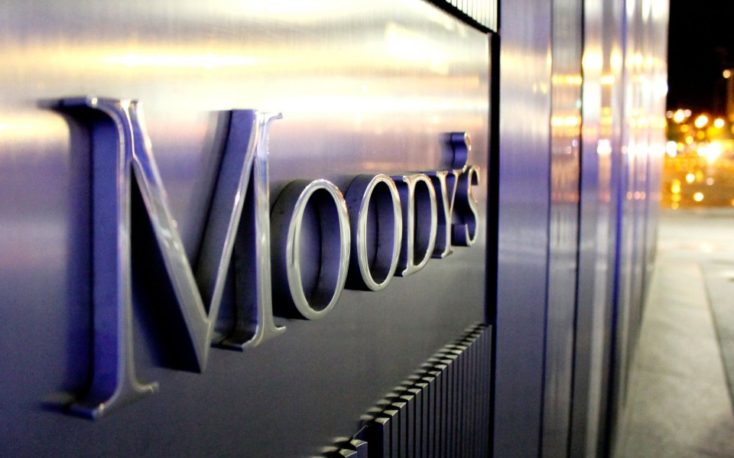New York, U.S.A – International financial research and credit rating agency, Moody’s Investors Service (Moody’s) has said that the budget proposed by the Maldivian government underscored the significant fiscal deterioration of the country amidst the Covid-19 pandemic.
According to a publication by Moody’s dated November 13, it stated that the proposed budget for 2021 highlighted the government’s challenging fiscal dynamics amid continuing global movement restrictions, with around one-third of the country’s revenue stemming from tourism and directly related activities.
The report also stated that the hit to economic activity has risen the governments liquidity risk and exacerbates the sovereign’s weak fiscal and external position. Moody’s had stated that they expected that Maldives’ fiscal deficit will peak in 2020 at 13.4 percent of GDP. They also stated that the deficit of the nation will be above 10 percent due to the large expenditure needs and due to the weak revenues of the nation.
Moody’s also added that additional borrowing would drive the debt burden above 80 percent by the end of 2020 even though it is partially funded through concessionally oriented foreign assistance.
Moody’s had also stated that even if there is a significant rebound of the Maldivian economy in 2021, the nations economy is unlikely to recover to the pre-pandemics size until 2022. They have also said that they expect the magnitude of the effects of the coronavirus pandemic to precipitate an even larger drop in economic activity, with the nations real GDP contracting nearly 20 percent in 2020.
Moody’s also highlighted that the tourist arrivals have been slow to recover even though the borders opened in July 15, 2020 and noted that tourist arrivals were down 67.9 percent year-on-year, and monthly arrivals over July to September were more than 90 percent lower than in the same period of 2019.
They have also pointed out that the organisation did not believe that revenue-raising measures proposed in the 2021 budget such as telecommunication license fee changes, land sales and changes to airport development fee and airport service charge to offset the weaker tax revenues which have been forecasted.
Moody’s also noted that a weak recovery in revenue to be the most significant source of pressure on the 2021 fiscal deficit. It also highlighted the drop in tourism-related tax income and the slow recovery in tourist arrivals. The state budget forecasts total revenue and foreign assistance of MVR 17.8 billion, well below the 2020 approved budget of MVR 30 billion. Through October 2020, total revenue and grants were just MVR 11.4 billion, down 44.2 percent from the same period in 2019.
Moody’s had also said that the external debt repayments will continue to strain the government’s liquidity buffers ahead of its international bond repayment in July 2022. It noted that drawing upon proceeds from the Sovereign Development Fund (SDF) – the liquidity buffer established to repay the $250 million sovereign bond – can reduce the financing gap in 2020, but that significant drawdowns would raise rollover risks ahead of the sovereign bond’s maturity.
Apart from investment returns, Moody’s had also stated that the inflows into the SDF are tied to tourism through the airport development fee, as to which would constrain a rebuilding of the SDF buffer if the tourism recovery be weaker than our current expectations.
Earlier this month, Fitch Ratings Inc., had downgraded Maldives’ long-term foreign-currency Issuer Default Rating (IDR) from ‘B’ to ‘CCC’ stating that it reflects Fitch’s expectation of deeper and more prolonged external liquidity pressures than previously forecast, and a sharp increase in the country’s debt burden as a result of the coronavirus shock and continued debt-funded infrastructure spending.
In early October this year, the World Bank had also said that postponing large public infrastructure investments that are not urgently needed would help address Maldives fiscal and debt sustainability risks amid the Covid-19 pandemic.
In the report “Beaten or Broken? Informality and COVID-19 – South Asia country briefs” by The World Bank highlighted the impacts of Covid-19 to the South Asian countries and has given out suggestions on how governments can combat these economic challenges. The report pointed out that Maldives faces high public debt as it has risen further due to the pandemic as external non-concessional borrowings had gone up.
According to the government the proposed MVR 34.8 Billion budget for 2021 is planned and set to be in accordance with the implementation of the “National Resilience and Recover 2020-2022” plan which was made to boost the economy from the fateful consequences of Covid-19.
It is estimated that the government would receive MVR 17.8 billion as revenue and grants in 2021, of which tax revenue constitutes the major item while the estimated budget balance for 2021 is a deficit of MVR 15.5 billion. According to the government the primary balance for this period is a deficit of MVR 12.9 billion and this deficit would be financed through various financial instruments such as bonds, sukuk and treasury bills and by borrowing.





